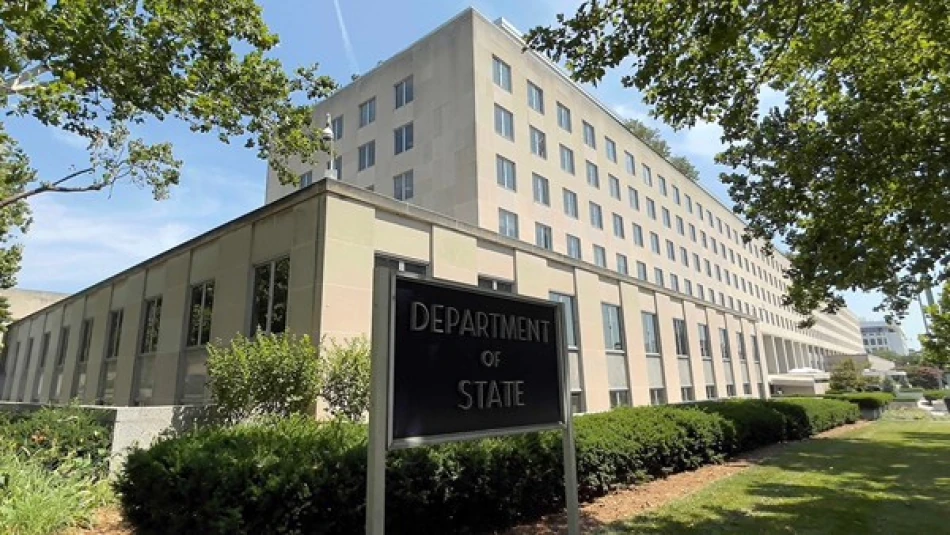
US Condemns Violence in Syria, Calls for Diplomatic Resolution
Washington Calls for Syrian Ceasefire as Regional Tensions Mount
The U.S. State Department has issued a renewed call for de-escalation in Syria, urging all parties to engage in meaningful dialogue toward a permanent ceasefire. The statement signals Washington's continued diplomatic engagement in the conflict as violence persists more than a decade after the Syrian civil war began.
State Department Pushes for Dialogue
State Department spokesperson Tammy Bruce told reporters Thursday that the United States condemns ongoing violence in Syria and is actively engaging with all parties to move toward calm and continue discussions about the country's unity. The statement places particular responsibility on the Syrian government to "lead the way forward" in peace efforts.
This diplomatic push comes as Syria remains fractured across multiple zones of control, with the Assad government controlling most territory, Turkish-backed forces in the north, and U.S.-supported Kurdish groups in the northeast.
Strategic Implications for Regional Stability
Broader Middle East Context
The renewed American diplomatic initiative reflects Washington's broader strategy to prevent Syria from becoming a flashpoint that could destabilize the wider Middle East. With ongoing tensions between Israel and Iran playing out on Syrian soil, and Turkey maintaining a significant military presence in northern Syria, any escalation carries risks beyond Syria's borders.
The timing of this statement suggests the Biden administration is working to maintain the fragile status quo that has largely held since 2020, when major combat operations decreased significantly compared to the war's peak years between 2011-2018.
Limited Leverage, Persistent Engagement
Despite reduced American military presence in Syria compared to peak involvement, Washington maintains approximately 900 troops in the country, primarily focused on counter-ISIS operations. This limited footprint means U.S. influence relies heavily on diplomatic channels and partnerships with regional allies.
The call for Syrian government leadership in peace efforts represents a pragmatic acknowledgment that Assad's government has consolidated control over most of the country, even as the U.S. maintains sanctions and refuses to normalize relations with Damascus.
Challenges to Sustainable Peace
Any meaningful ceasefire faces significant structural obstacles. The Syrian conflict involves multiple local and international actors with competing interests, from Iran and Russia supporting the Assad government to Turkey's concerns about Kurdish autonomy along its border.
Economic reconstruction remains another critical factor, with Syria's economy devastated by years of conflict and international sanctions. Without addressing underlying grievances about governance, human rights, and economic opportunity, temporary ceasefires risk proving unsustainable.
The State Department's emphasis on "meaningful dialogue" toward a "permanent ceasefire" suggests recognition that previous temporary truces have failed to address root causes of the conflict, leaving Syria vulnerable to renewed violence whenever political or military calculations shift.
Most Viewed News

 Layla Al Mansoori
Layla Al Mansoori






